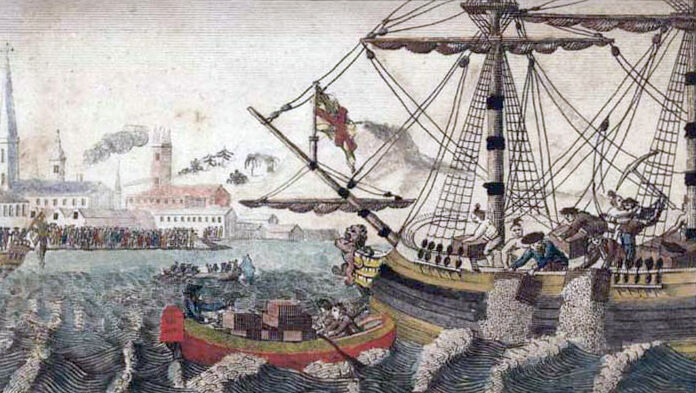All these taxes and this lack of representation exasperated the American colonists. Some of them took the name Patriots to express their sense of belonging to America and to oppose Great Britain. After having peacefully demanded what they considered their rights, without success, they took much more radical means to make themselves heard.
In 1773, in Boston harbour, American colonists stormed British ships carrying tea and threw the cargo overboard. This act of civil disobedience demonstrated the Patriots' disagreement with British taxes. This important event in American history became known as the Boston Tea Party.
Following this patriotic action, many American colonists boycotted British products as a sign of protest.
A boycott is the act of refusing to buy or consume a product or service from a company or country in order to express dissatisfaction with a particular situation.
In 1774, the Patriots met in Congress to discuss and formulate an official position on the inadmissible British laws. They organised an armed revolt. The battles began in 1775. George Washington, who would later become the first President of the United States, was appointed General-in-Chief of the Patriots' army. On 4th of July 1776, the members of Congress wrote a document entitled The Declaration of Independence of the United States in which they dissociated themselves from Great Britain on the basis of certain Enlightenment ideas such as liberty, equality and autonomy. The British crown rejected the document. The Patriots had to win the war against the British soldiers in order to become truly independent.
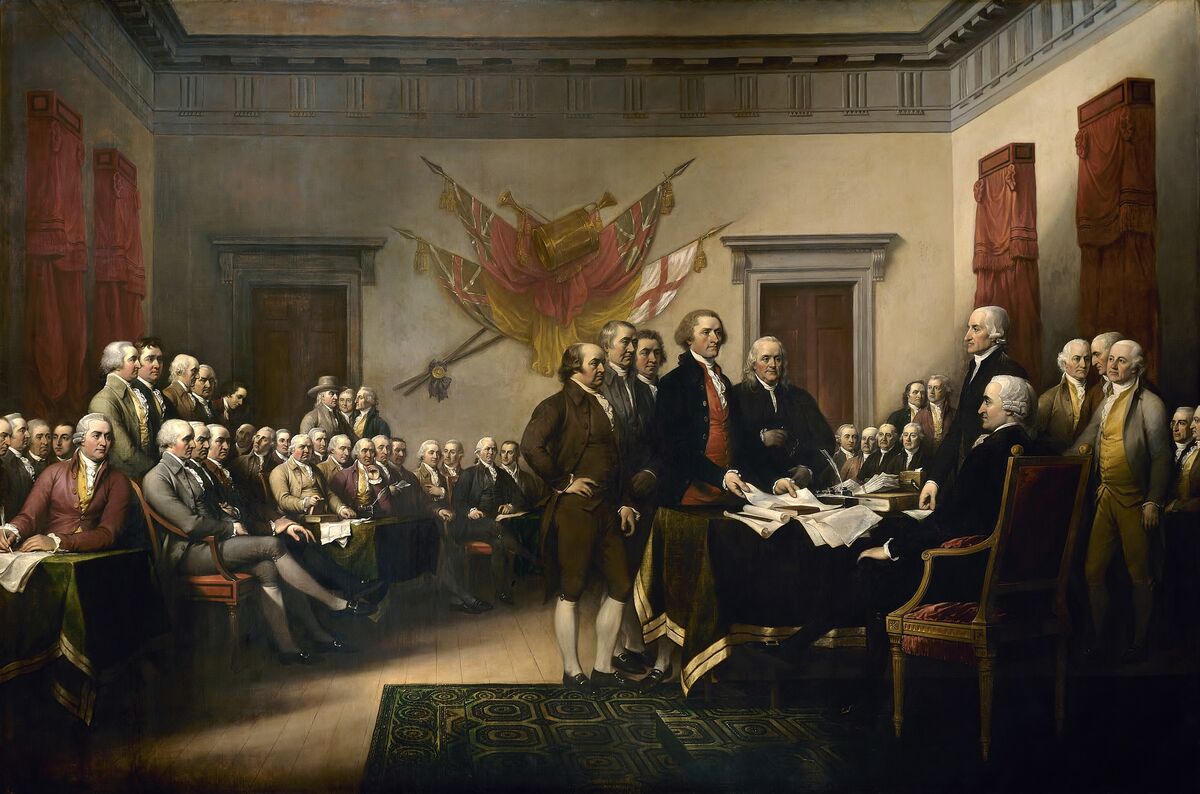
Signing of the United States Declaration of Independence
The Patriots took up arms to win their independence. The Americans were outnumbered and outgunned. They turned to France, an old enemy of Great Britain, for help. France agreed and recognised the independence of the American colonies. The war lasted five years. In 1781, at the Battle of Yorktown, the Patriots army, also made up of French soldiers, defeated the British soldiers. This great victory put an end to the American War of Independence. This independence was formalised by the Treaty of Paris in 1783.

The surrender of the British at the Battle of Yorktown
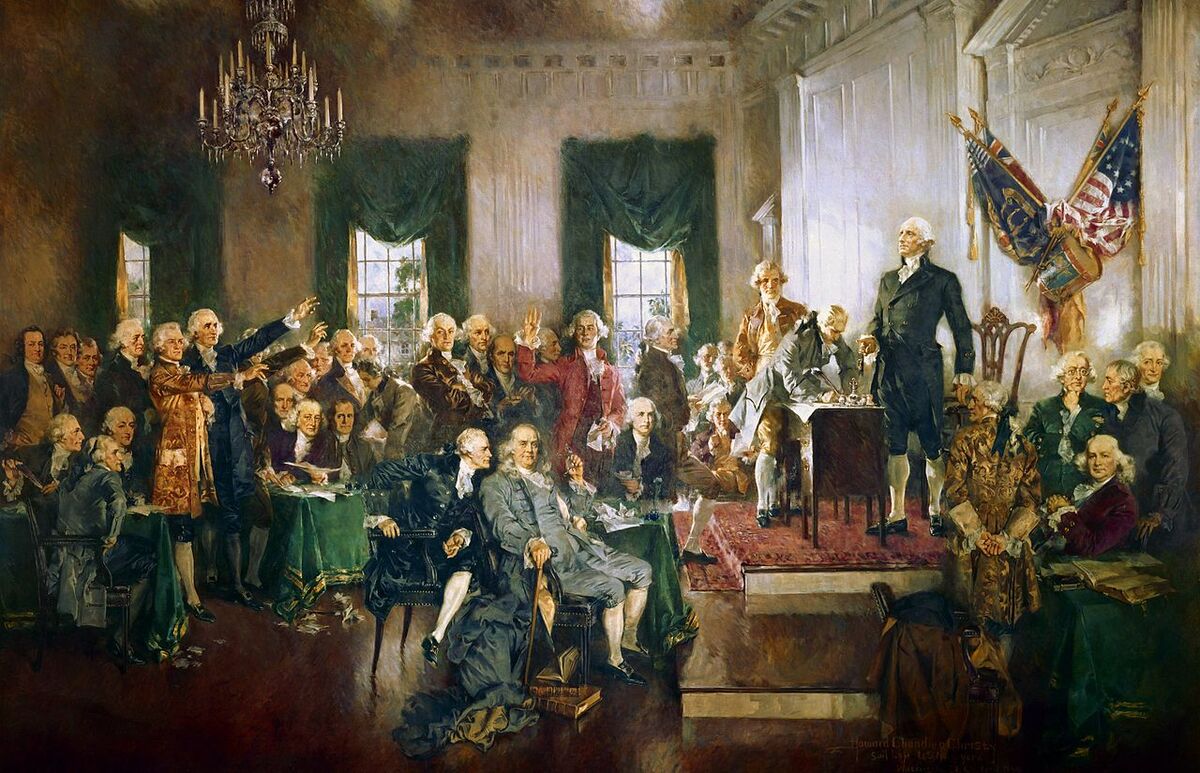
Signing of the American Constitution in 1787

The American constitution
Now that the Patriots had won their independence from Great Britain, they had to set about establishing their new country. The members of Congress drafted the new country's constitution and made it official in 1787. This new document stipulated that the Thirteen Colonies would be united under the principle of a federation. It also set term limits for the leaders, defined who was entitled to vote, explained how the courts would operate, and so on. This first constitution contained a number of elements drawn from the ideas of the Enlightenment philosophers: the right to property, the separation of powers and equality between individuals (even though women and black people had no rights at the time).
A constitution is a document in which the laws that define a state are written. It is an important document because all subsequent laws must be based on these fundamental laws.
A federation is a system of state organisation in which powers are divided between a central government (the United States) and the governments of the members of the federation (the various states: Maine, Vermont, Texas, etc.).
Following the principle of a federation, the Thirteen Colonies became 13 States, each with an independent government, but with a superior and common government. The federal and state governments share areas of responsibility. For example, the military was managed by the federal government, while health care was managed independently by the states. George Washington was chosen by Congress to be the first President of the United States.
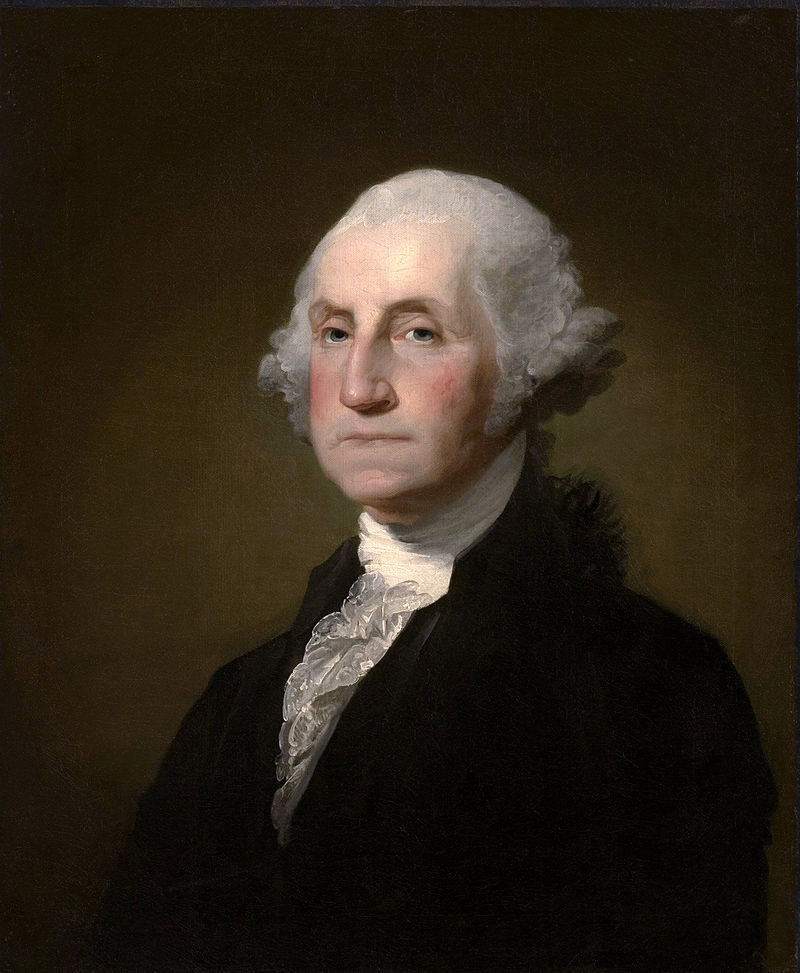
George Washington
Following the reluctance of certain states to join the federation, Congress decided to amend the Constitution. These first 10 amendments became known as the Bill of Rights. Once again, the Bill of Rights was directly influenced by Enlightenment ideas, such as the right to freedom of speech.
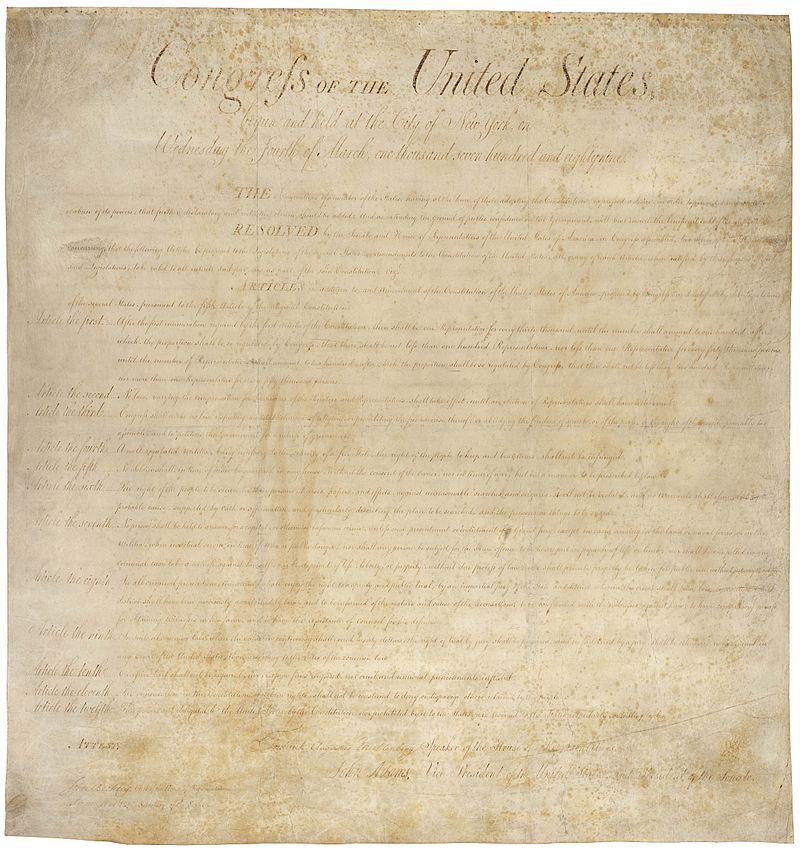
Bill of Rights
